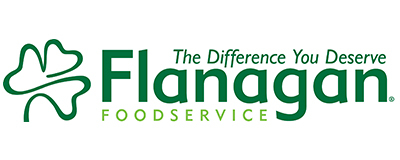
We collect basic website visitor information on this website and store it in cookies. We also utilize Google Analytics to track page view information to assist us in improving our website.
Breakfast for dinner is now a thing all across Canada. McDonald's Canada rolled out its all-day breakfast option at the end of February 2017, and is banking on the change to provide the same bump in traffic and same store sales as in the U.S.
John Betts, McDonald's Canada CEO, suggested that the introduction of the program was driven partly by social media and Twitter requests by the thousands from customers for all-day breakfast since its launch in the U.S.
And who are those Tweeting customers? The Millennials, of course.
Younger Millennials in particular—also known as 'training millennials'—are changing the game in foodservice. An extensive, ongoing tracking study by Ipsos Canada of Canadian eating habits reveals that Millennials tend to eat "small meals through the day when it suits their needs." Millennials seek food options that reflect their non-conventional lifestyle. According to the Ipsos study lead, "(Millennials) do things on their own time. They've never known 'closed on Sundays,' they shop when they want, they work—many of them—in situations that appease their need to have their own schedules."
Foodservice operators—and not just the giants like McDonald's—are taking notice and adapting to meet this expectation.
In Canada and the U.S., the Millennial Generation Y cohort is now as large as the Boomers. As a percentage of the labour force, Gen Y is already far and away the biggest group. These numbers speak volumes, and underscore the inevitability of demography in a "post-growth" 21st century.
In her book, "A Taste of Generation Yum: How the Millennial Generation's Love for Organic Fare, Celebrity Chef, and Microbrews Will Make or Break the Future of Food," Eve Turow Paul, herself a Millennial, spent close to four years interviewing peers, reviewing academic work, and talking to iconic foodies like Anthony Bourdain and Michael Pollan.
The genesis for the book was an observation she made while sitting in a college class. "One of the girls across from me was saying that there was a frozen yogurt place that had flavours that changed every day. She had the number on her phone and would call them every day to see what the flavour was."
This observation was the catalyst to her research. Her chief takeaways?
Millennials are the most food-obsessed generation in history. Newton's 3rd Law states that for every action, there is an equal and opposite reaction. After all of that screen time on their smartphones and other devices, it's not surprising that Millennials are looking for something tangible, genuine, and sensory.
Generation Y is the product of the shock of colliding negative and positive factors. The negative charges: political cynicism and sustained economic recession. On the positive side: ever expanding access to technology and information. The result is mixed and somewhat contradictory. Many studies have concluded that Millennials exhibit elevated rates of anxiety, depression, and even suicide. However, access to technology and social media provides Millennials with the sense of empowerment, community, and control they crave.
Turow Paul pulls no punches: "I think we need to make food something that Millennials want to be part of in their brand. We need to make it hip. I don't believe that this is a generation of people who just want to do good things; I think (Millennials) are self-serving and narcissistic. I think we are really invested in branding ourselves."
For Millennials, what and where they eat (or don't eat) is as much a part of their identity as the social media sites they connect on. The labels Local, Organic, Gluten-Free, GMO, Single-Source, Bio-Dynamic, Vegan, Cage-Free, Paleo, and Fair Trade have become powerful tags for this group.
Wondering how to better engage with the Millennial tribe? There is no silver bullet. According to Environics Analytics, the group is extremely diverse. Beyond the "Living at Home" and "Left Home" divide, there are upwards of a dozen unique cultural, ethnic, educational, value, and economic archetypes among Millennials.
By Darren Climans

